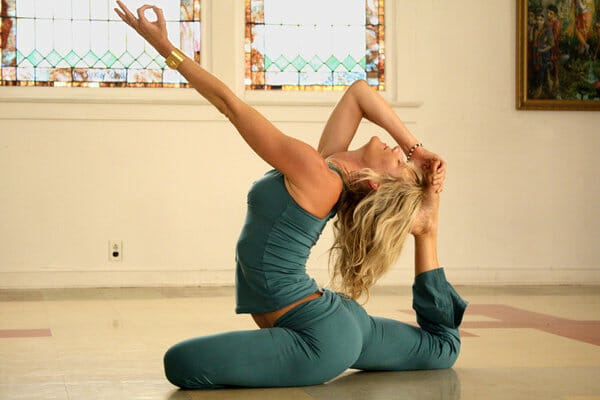Yogawoman

It’s hard to pinpoint when yoga really took off, but sometime in the past decade, women started going to yoga like they were going to lunch or picking up the drycleaning. Studios began popping up like Starbucks in big cities, and suddenly there was such a thing as yoga apparel. Ironically—considering that for centuries, exclusively men practiced yoga—not just the followers were women, but the leaders were, too. The documentary Yogawoman, directed by theater producer and yogi herself, Kate Clare McIntyre, charts how female yoga teachers have transformed yoga into the popular hobby, expertise and lifestyle that it is now.
The title may sound like a feminist knockoff of Superman, but the film takes itself seriously. In interviews with teachers in Tokyo, Kenya, Germany, San Francisco and L.A., Yogawoman’s ambitions are global rather than limited to the cultish studios that get lots of press or the mystical gurus in India. It hits the concrete and looks at how yoga is affecting women of all livelihoods.
The film follows a narrative trail that reflects the female life cycle, which provides a strong backbone. (Without it, the film could easily be a prolonged sermon.) In different sections, Yogawoman looks at how yoga is applied to women of all different body types, ages, life situations and bodily conditions. There are children doing backbends, pregnant women doing downward dog and a 95-year-old woman doing adapted poses on her bed. It’s surprising to see a practice comprised of specific, set poses altered to fit such disparate yogis, which the film reiterates as one of yoga’s finest qualities—anyone can do it. It also raises the question of whether everything deemed “yoga” actually deserves the name.